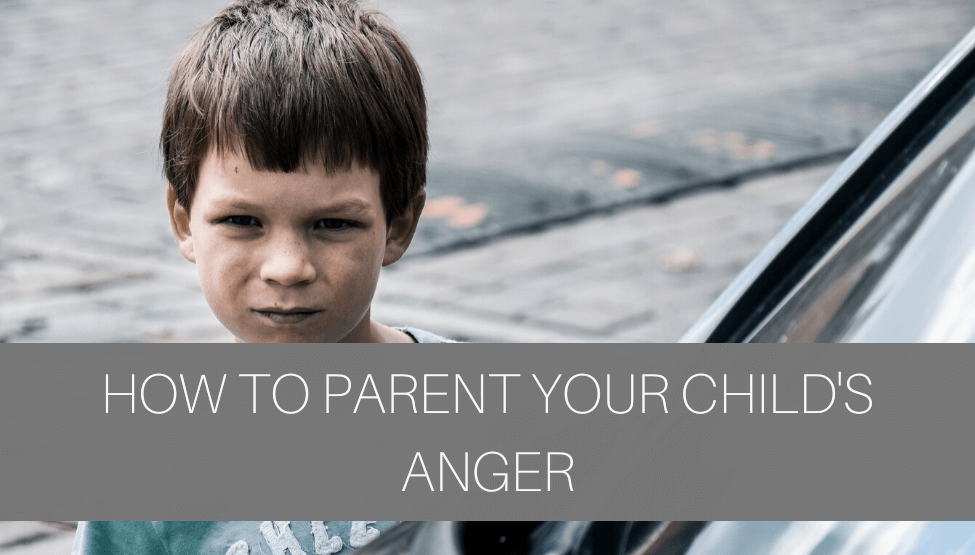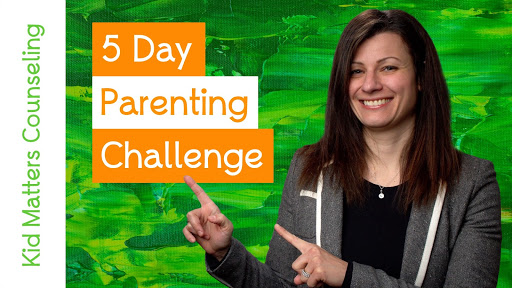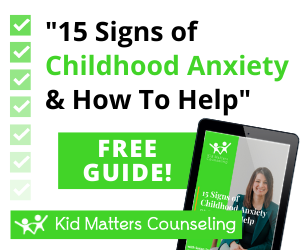Anger is commonly categorized as a bad and aggressive feeling that children shouldn’t have. It can also come with behavioral challenges that are difficult to work through. If you feel overwhelmed and stuck when your child gets angry, let’s take one deep breath together, and let’s talk about anger.
Take a second to notice what comes to mind when you think about the last time your child felt angry. You might remember your child screaming, hitting, kicking, running away or ignoring you. You might notice your body start to feel hot, tense, or neck and shoulder pain. You might even notice feeling hopeless, confused, stressed or angry. It can be hard to know how to respond to your child’s anger.
The next time your child feels angry, test out these 4 tips:
Center your mind.
It is normal for you to an emotional reaction when your child is angry. Centering your mind is not about getting rid of your feelings, or being 100% calm. It is about building awareness of your own experience so that you can react with intention rather than react with intensity. To center your mind, it can be helpful to name your feelings out loud and count 10 of your breaths.
Attune to the message.
Once you are centered, ask yourself “what is my child trying to tell me with their anger?” In many cases, a child will experience some type of change right before they feel angry. Anger can be your child’s way of letting you know that something has just changed, and it did not feel good in their body. If that change happens to be a limit or rule you are enforcing, just because it did not feel good in your child’s body, does it mean that you have to remove that limit. It only means we need to help your child notice, understand, and soothe their anger.
Respond empathically.
Once you have identified your child’s message, let them know that you notice them, that you understand what has led to their anger, and that you know they are having a hard time. It might sound like this, “I see that you are feeling angry right now. You really wanted to spend more time playing with your toys. It can be tough to stop doing things that make you happy”. Or it could also sound like this, “ugh, not playing with your toys is so hard. It makes you really angry that I asked you to put them away. ” Responding empathically doesn’t mean you agree with your child’s anger or behaviors, it only tells them that you understand what they are going through.
Explore regulation.
Regulation is our ability to use healthy strategies that help settle big and difficult feelings. Every child is different, which means every child will prefer a different strategy . Some children will need some time alone to cool down. Others might like to sit with someone without the need for talking. And some need their safe adult to use a strategy with them. You might offer to give them a deep hug, sing them a song, bounce on a yoga ball, or rock them back and forth.
The next time your child feels angry, use the acronym CARE to test these four tips: Center yourself, Attune to the message, Respond empathically, and Explore regulation.
At Kid Matters Counseling, many of our therapists work with children who experience anger. For more parenting resources subscribe to our free parenting newsletter. And remember, don’t parent alone.

Fernando Gonzalez
Child Therapist | MSW
I help parents & children build a stronger connection through identifying, expressing, and regulating big feelings and challenging experiences.
Kid Matters Counseling has trained therapists ready to help both kids and parents walk through the tough moments in life.
End the frustration & the confusion and let's work together! SCHEDULE APPOINTMENTNew Clients Call: (855) 586-1802
Current Clients: (855) 543-7687
Ask Us Anything!
We help anxious kids and frustrated parents. We serve Hinsdale & the Western Suburbs of Chicago.
Made with ♥︎ in Hinsdale, Illinois for Chicago
Built By Brand Your Practice.
Kid Matters Counseling, P.C. DISCLAIMER: This website and blog are for informational, educational and general discussion purposes only. It is understood that no guarantee or warranty arises from the information provided, discussed or commented upon in this website and blog nor does it constitute legal or other professional advice on any subject matter. Access to this website and blog is voluntary and at the sole risk of the user. If you think that you have a medical emergency (including clinical), call your doctor or 911 immediately. A licensed medical professional should be consulted for diagnosis and treatment of any and all medical conditions. While the information contained within this website and blog is periodically updated, no guarantee is given that the information provided is correct, complete, and/or up-to-date. See our complete Privacy Policy and Terms of Service.



